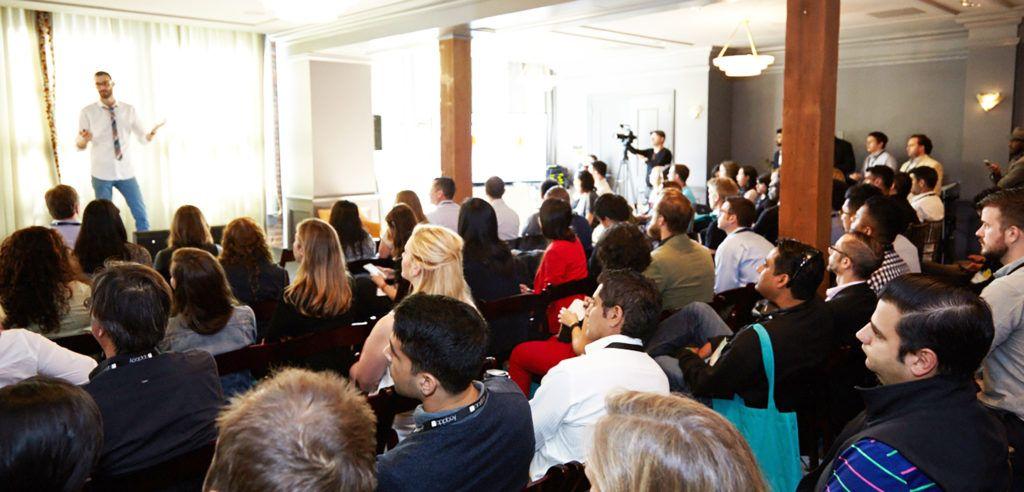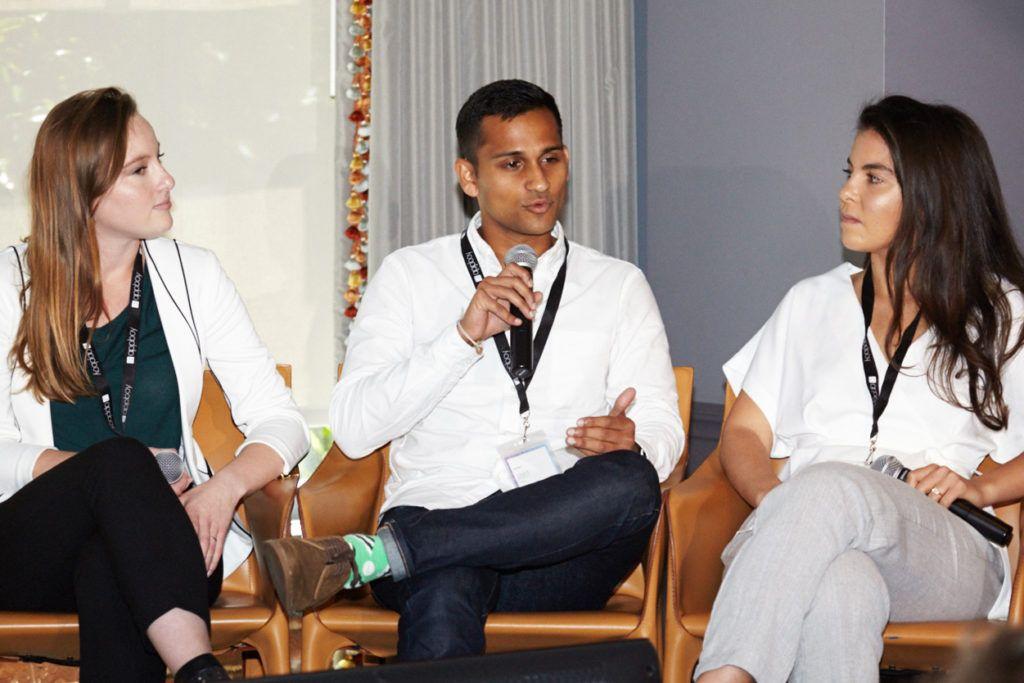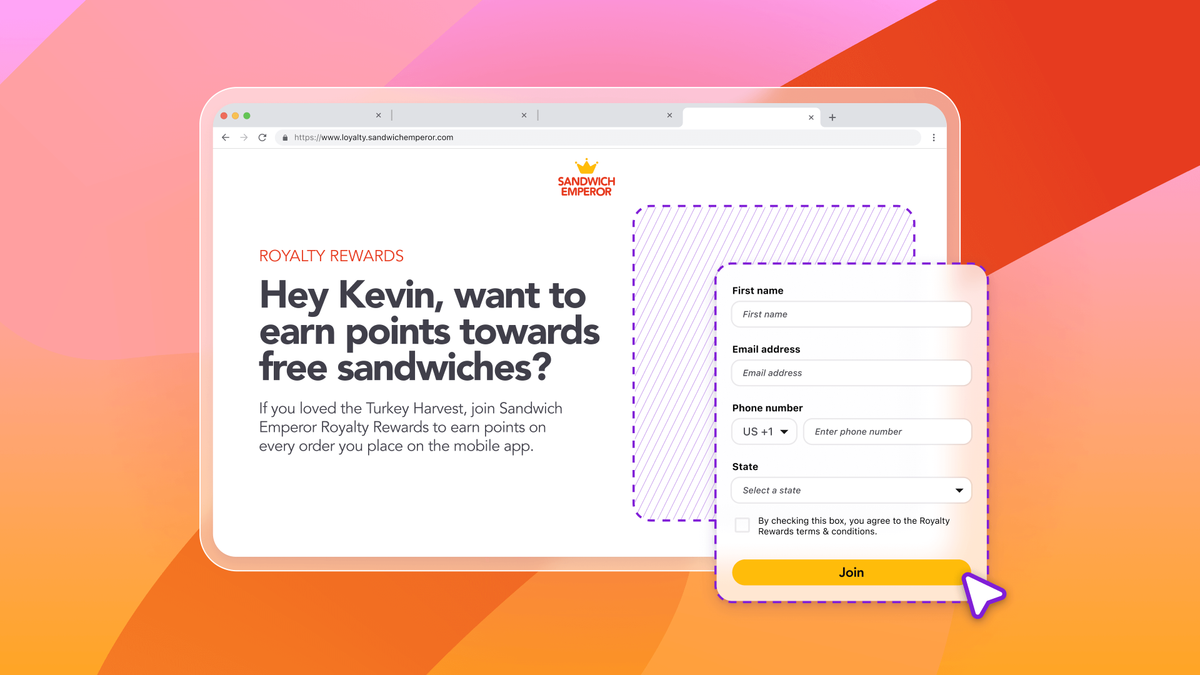LTR SF 2016: People-First Strategies from Tinder, Dropbox, and GV
Published on May 20, 2016/Last edited on May 20, 2016/5 min read


Team Braze
On Tuesday, 177 people from all corners of the marketing and tech industries descended upon The Battery, a San Francisco social club, for Appboy’s LTR San Francisco conference.
The conference brought out some tech heavy-hitters, including Jeff Morris Jr. from Tinder, Jake Knapp from GV (formerly known as Google Ventures), Judith Williams from Dropbox, Charles Condon from PicsArt, and tons of others. As you may have read a few months ago, LTR isn’t your typical tech conference. LTR was created to explore the intersection of technology and human connection in marketing.
Here are the five key takeaways from Tuesday’s conference that will help you transform your marketing strategy for better customer relationships and increased business growth.
#LTRSF2016: People-First Strategies from @Tinder, @Dropbox, and @GVteam
1) Focus on the user experience to grow brand likeability
In order to get users to connect with their brand and consistently use their app, Tinder focuses carefully on user experience when engaging with their users and only sends meaningful messaging that encourages an action. According to Jeff Morris Jr., Tinder’s Director of CRM & Engagement, Tinder sends push notifications only to facilitate conversations between people. This is done with push notifications that notify users when they’re able to swipe on more profiles, “surge notifications” that notify users when activity is high in the app, and timely push notifications that leverage current events (e.g. NYC’s January snowstorm) to encourage people to engage in the app.

A Tinder push notification during NYC’s January 2016 snowstorm.
Tinder also doesn’t send transactional emails because their brand’s big value proposition is tied directly to the app. Therefore, they’ve decided to keep their messaging app-based. They attack each part of the customer funnel in one-month sprints, which is a testament to their attention to detail and dedication to the customer experience. Lastly, Morris Jr. suggests adding humor to enhance the experience for users. “I really do believe that our industry lacks a sense of humor.”

Jake Knapp from GV
2) Move at the pace of mobile with sprints
Understanding and leveraging the demands of today’s mobile-centric customers in a rapidly changing mobile economy requires the right team and the right processes. One way to work efficiently and tackle your marketing team’s biggest challenges is to run sprints (the process, not the workout).
Created by Jake Knapp, Design Partner at GV, the sprint process is a five-day process for solving critical business challenges. Everyone clears their schedule for a week and focuses on one big problem. Although Knapp’s sprint concept was initially created for design projects, it can also be applied to other complex projects across many departments. For example, we used the sprint process with the agile framework in our marketing department to launch our multinational ad campaign.
Adopting the sprint process for your most difficult mobile marketing challenges can help you test, learn, and see results sooner rather than later.

(From Left to Right) Maddie Foster from Congo Voice, Ankit Shah from Tea With Strangers, and Caroline Ghosn from Levo
3) Be real and be conscious to reach millennials
If you’re a company selling a product or service in 2016, you’ll almost certainly encounter millennials one way or another. They’re currently the largest and most demanding generation to be reckoned with. In a healthy debate, our millennial panel discussed what really matters to millennials. The gist?
Millennials seek authenticity, they seek two-way conversation, and they want every dollar they spend to make an impact. They’re also deeply interested in conscious consumerism, which is increased interest in ethical business practices, goods, and services that are sustainable, better for the planet, and have a positive impact on people.
The key to effectively engaging millennials is to be transparent, engage with speed and authenticity, create products and services that support your brand’s story, and create products and services with a purpose.
4) Creative engagement = better long-term retention
We already know that consistent engagement equals better long-term retention. But there’s something else that also resonates with customers: creativity. Appboy CRO, Myles Kleeger, highlighted the importance of onboarding and a multichannel approach for mobile, as well as getting creative with engagement efforts. Simply put, creativity works. When emojis, images, personalization, seasonality, and other creative tactics are implemented into mobile marketing campaigns, results increase significantly.
For example, PicsArt sees a 81.4% uplift in 60+ day lapsed users when they use seasonal campaigns to re-engage those users. They also use trending tags, how tos, creative suggestions, unique articles, and shop items to keep users engaged and entertained. And the emojis? They really matter, according to Chuck Condon, Director of Marketing at PicsArt.
5) Put diversity at the forefront of your messaging and company
Today’s marketing campaigns and workforce should reflect our diverse society and make everyone feel included. To do this, companies must be transparent about their shortcomings, call out prejudices (both blatant and subtle), conquer unconscious bias, and foster a culture that includes inherent and acquired diversity.
Inherent diversity includes the attributes we were born with (e.g. gender and ethnicity), while acquired diversity includes the experiences, education, and characteristics we’ve acquired throughout our lives. According to Judith Williams, Global Head of Diversity at Dropbox, having both types of diversity leads to increased innovation.
People-first is the new normal
Overall, a people-first mindset to marketing and tech is the key to successful relationships with customers. As Appboy CEO, Mark Ghermezian, said in his keynote, “We all really want to know who’s on the other side [of the screen].” Use the five tips above to ensure that your marketing is as effective as possible.
There are more nuggets from the conference that may help your marketing strategy. If you missed our live tweeting, you can check out the tweets here. Also, you can understand your app’s retention rate and how it stacks up to the benchmark rates seen in your vertical with our new app retention report.
Releated Content
View the Blog
Demographic segmentation: How to do It, examples and best practices

Team Braze

Landing pages made simple: How to build your first Braze Landing Page

Courtney Baum

AI decision making: How brands use intelligent automation to scale personalization and drive revenue
